Latest edition of the Fuppery Newsletter is live - a twisted, funny retro fictional serial murder mystery told (eventually) in the medium of 1980s village newsletters. open.substack.com/pub/fuppe… #readingcommunity #books #crime
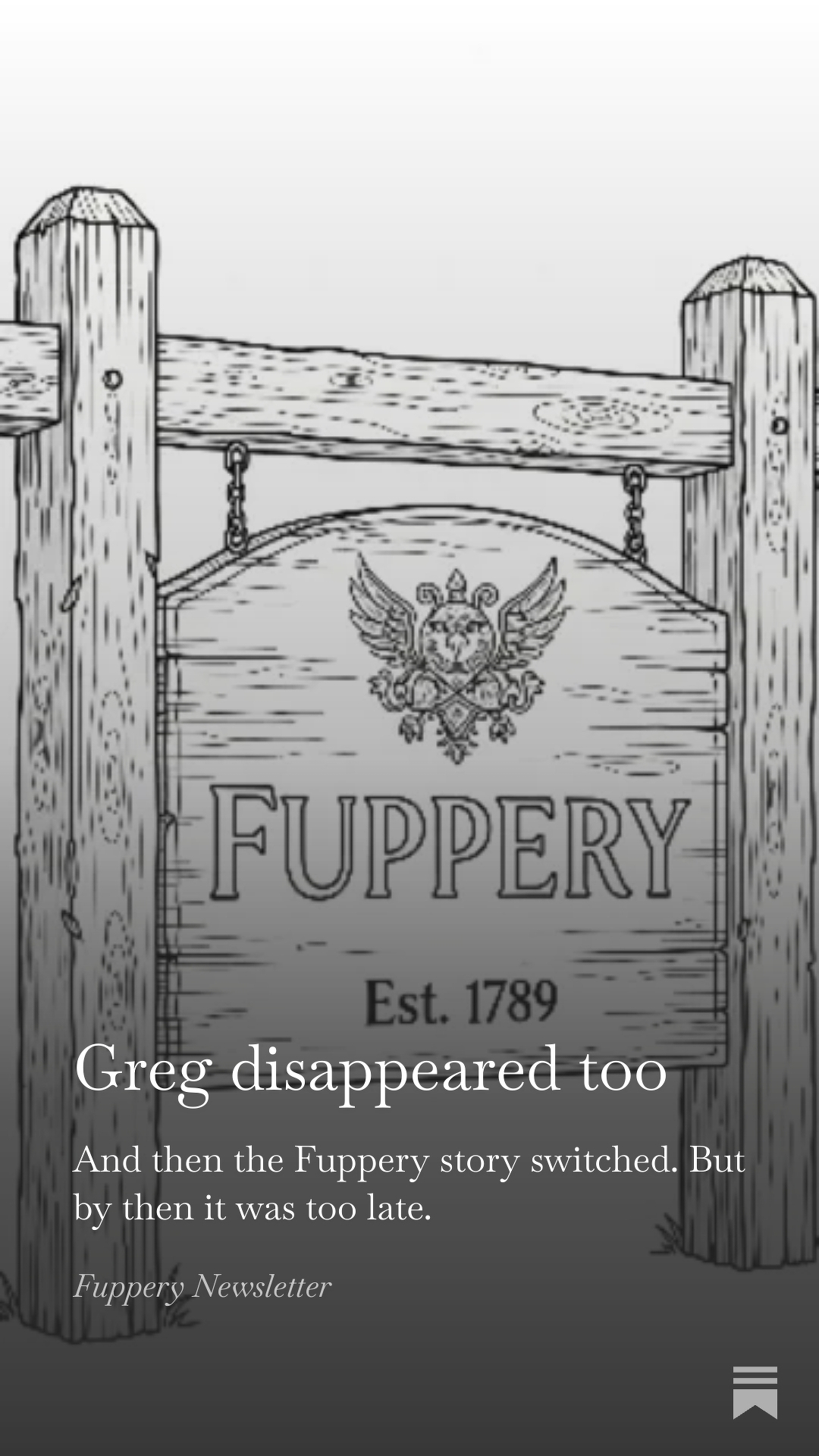
Latest edition of the Fuppery Newsletter is live - a twisted, funny retro fictional serial murder mystery told (eventually) in the medium of 1980s village newsletters. open.substack.com/pub/fuppe… #readingcommunity #books #crime

Latest in the (fictonal) weird shit my mother wrote about her village - This is prep for the actual serial next week. Kind of tipping the jigsaw pieces out and wondering where they all go) #booksky #writing #iamwriting Greg the geezer
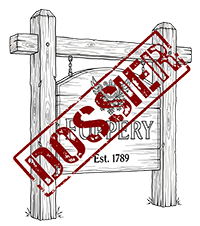
Episode 2 of the Fuppery Newsletter is now live - a twisted, funny retro fictional serial murder mystery told (eventually) in the medium of 1980s village newsletters. Get started while there’s hardly any catching up needed. fupperynewsletter.substack.com/p/fuppery…
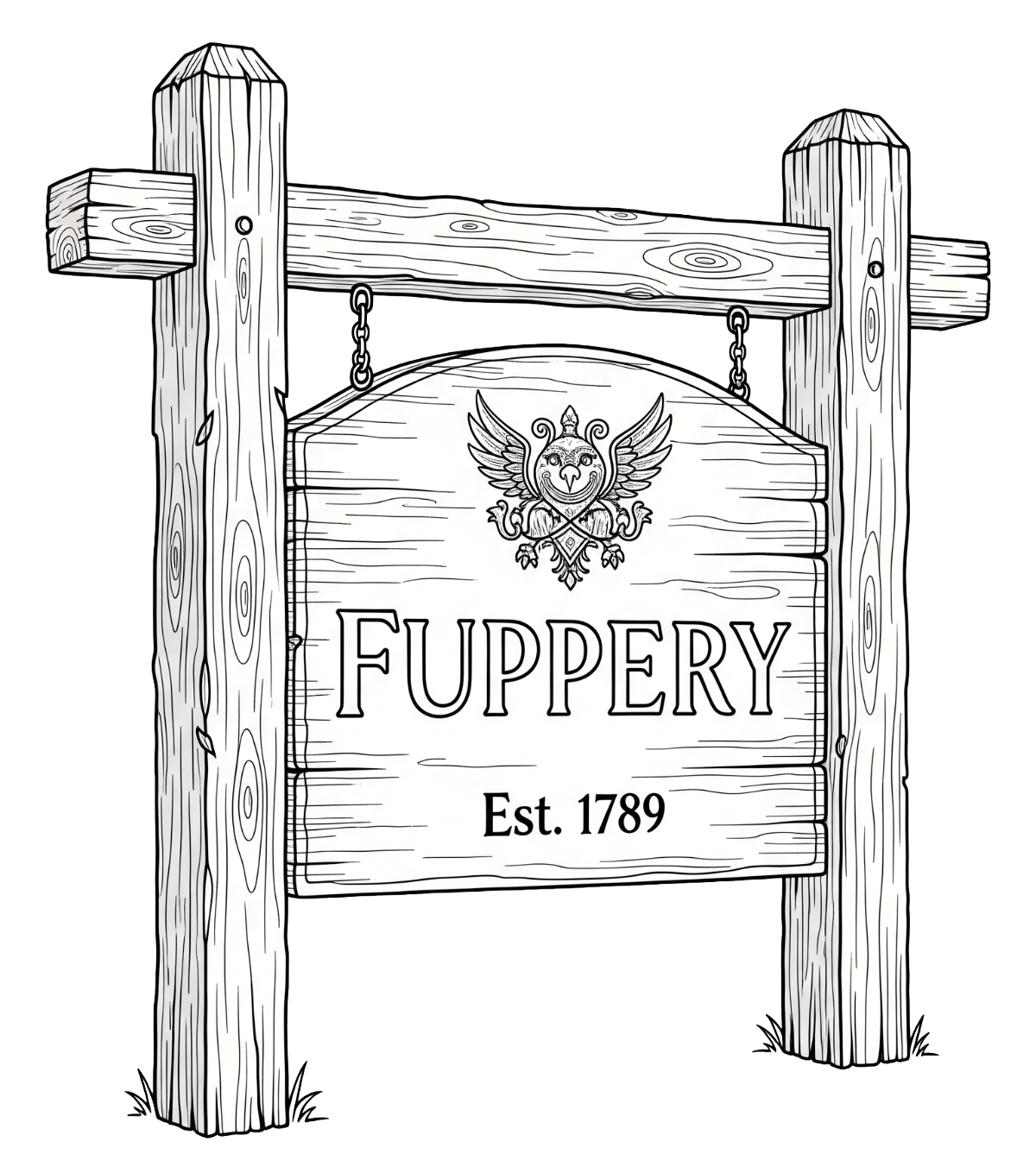
A squid-fishing ship goes silent in the Pacific & gangster’s fixer Liu discovers the problem’s worse, and weirder, than he could possibly imagine - but will he escape to tell the tale? My first short story to hit the streets: www.freedomfiction.com/2025/11/s…

Latest in the (fictonal) weird shit my mother wrote about her village - This is prep for the actual serial next week. Kind of tipping the jigsaw pieces out and wondering where they all go) #writing #iamwriting fupperynewsletter.substack.com/p/fuppery…
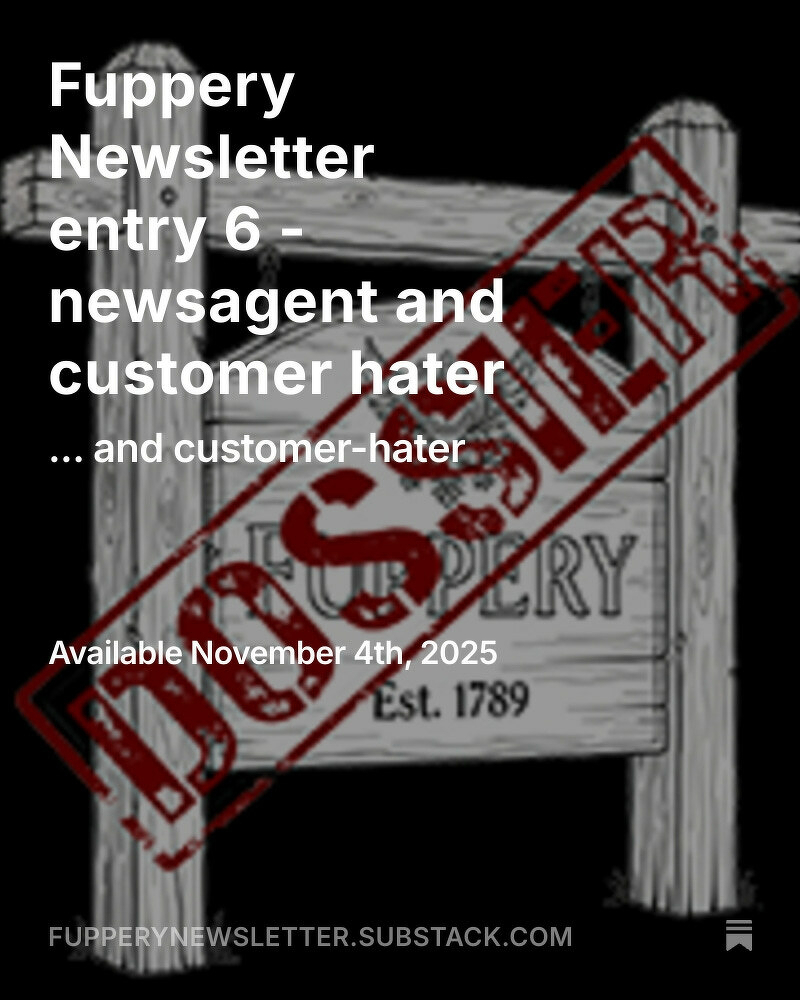
Latest in the (fictonal) weird shit my mother wrote about her village - This is prep for the actual serial next week. Kind of tipping the jigsaw pieces out and wondering where they all go) #booksky #writing #iamwriting fupperynewsletter.substack.com/p/dossier…
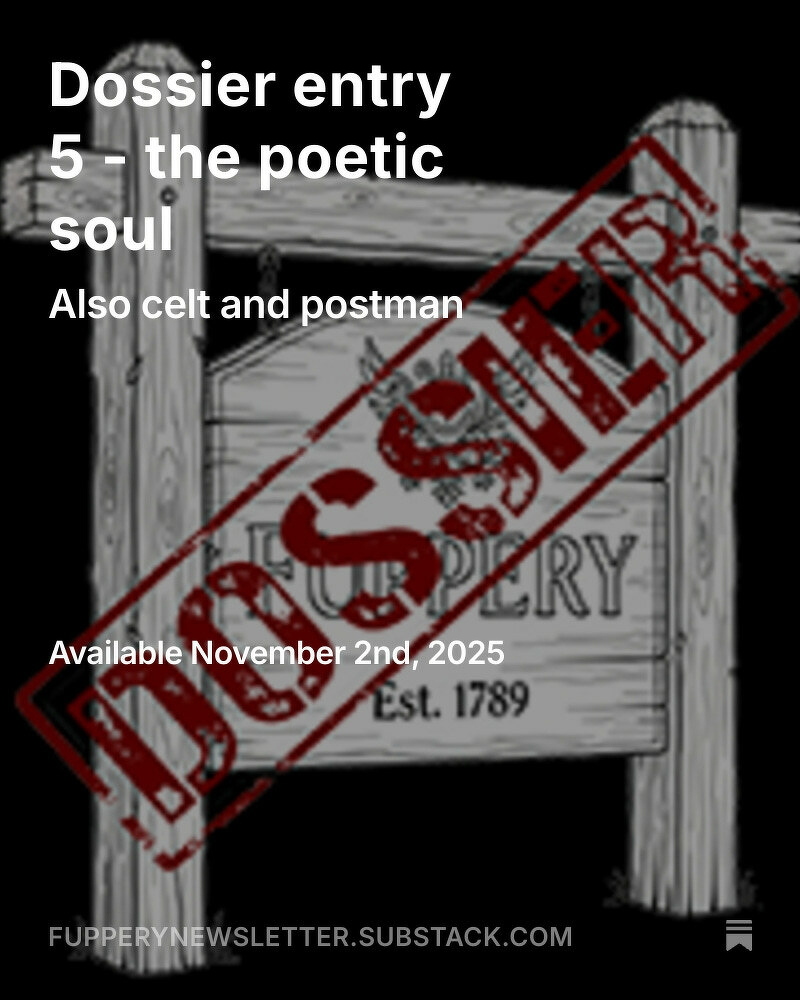
Latest in the (fictonal) weird shit my mother wrote about her village - This is prep for the actual serial next week. Kind of tipping the jigsaw pieces out and wondering where they all go) #booksky #writing #iamwriting fupperynewsletter.substack.com/p/dossier…
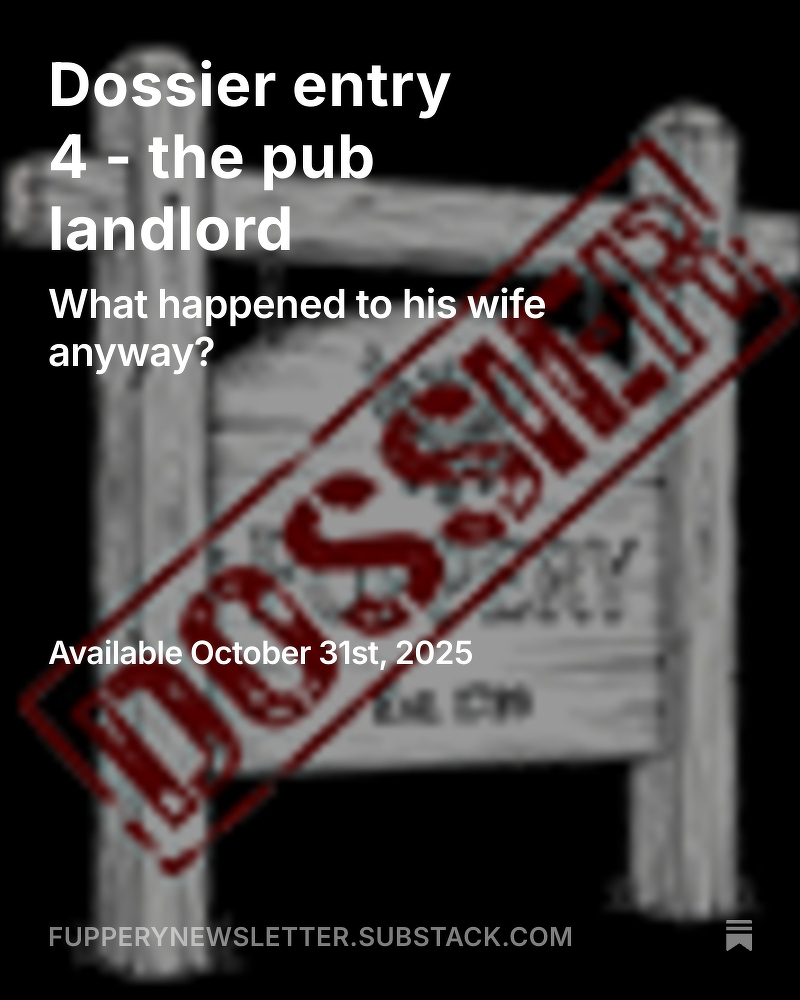
Latest in the (fictonal) weird shit my mother wrote about her village - This is prep for the actual serial next week. Kind of tipping the jigsaw pieces out and wondering where they all go) #booksky #writing #iamwriting open.substack.com/pub/fuppe…
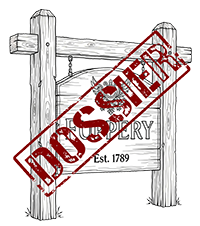
Next fragment from the the Fuppery Newsletter is up and going.
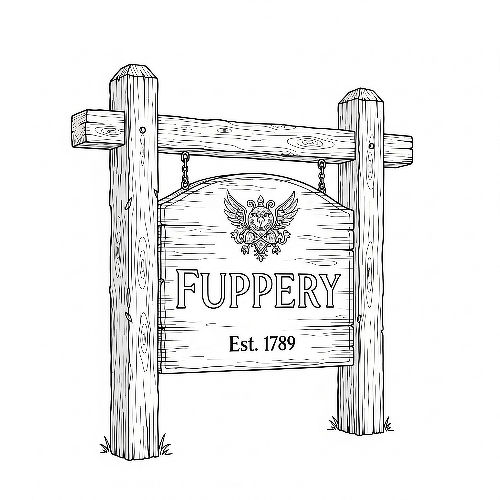
It begins. The first instalment of my twisted, funny retro serial murder mystery told in the medium of 1980s village newsletters has just gone up on substack. Getcherluvverly serialised fiction here: The Fuppery Newsletter
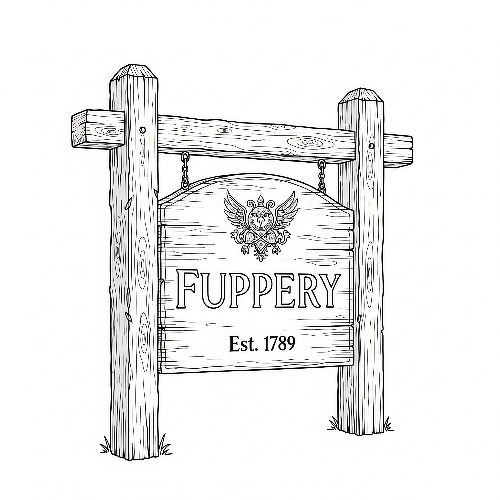
Woohoo. Another short story accepted today. I say short. 9000 words…. More as we get it.
#amwriting #HorrorSky #WriterSky
Little writing prompt left on our front lawn one morning…
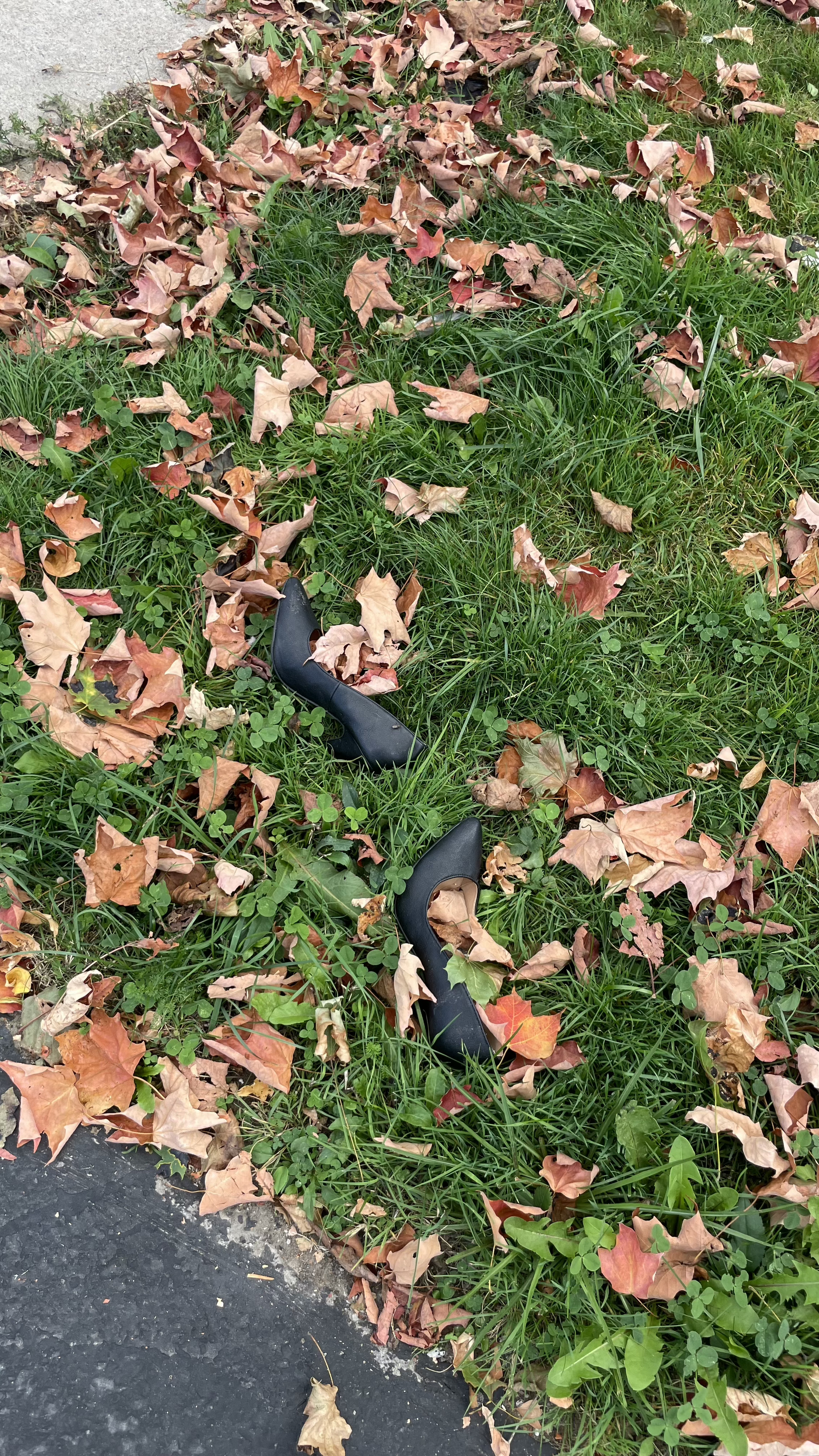
Just finished a pretty close-to-done first draft of a the thing I’ve got earmarked for Emerald City Ghosts ghost story mag. Still going to leave it at least overnight to catch the inevitable typos and other cludginess. #writingcommunity #writing
Got my first short story acceptance today. First one I wrote too (although after 40 years of writing other things for a living, I’d like to think I have some idea what I’m doing…). Will brag about it more when I know the date it’s coming out, etc. #writingcommunity #writing #shortstory #horror
I grew up in the Second World War, in Norfolk in the 1970s.
At least that was effectively what happened, even if the chronology is a bit off, technically.
Thirty years after the end of World War Two, Norfolk (the English county) was starting to accept that it might be over.
To get anywhere at all, you had to drive through abandoned world War Two airfields with decaying concrete loading ramps poking through the wheat stubble. In the corner of fields, pill boxes, squat concrete octagonal huts still had slots for machine gun barrels to point at the German troops advancing across towards them. Someone had at least put the signposts back, though ‘foreigners’ were still viewed with suspicion.
But it wasn’t just that. I had my own total war going on with my mother, and the insidious emotional occupation that forced me into emotional covert operation. Seamus Heaney had his inner emigre. I had an my inner French Resistance.
In a way, this was fine with me. I was a 10-year-old with ambivalent feelings about reality, and I welcomed becoming a member of the Resistance. Or the British Special Operations Executive, or Lifeline, the Belgian aircrew rescuing network in the Sunday evening BBC series Secret Army.
The Second World War never seemed to have properly left. I grew up close to where Apple TV’s Masters Of The Air were fictionally based and the rash of wartime American military airfields — aerodromes, my grandparents called them — were still there. The B12s Flying Fortresses and BXX Super Flying Fortresses had given way to the Phantoms and A10s, the US’s standard issues, but I would’ve recognised them from their silhouettes anyway. I had a wartime facsimile poster on my bedroom wall.
The RAF still wanted to cling on to its finest hour and kept calling the airfields RAF bases. 1970s England descended into three-day weeks and inflation, and the politicians paid fruit machine salesmen to kill blackmailers’ dogs [link to Jeremy Thorpe]. Norfolk decided it wasn’t keen on the 1970s either. Who could blame it. Ideally, it would’ve liked to go back to the 19th century, but grudgingly compromised on 1940.
I grudgingly compromised on a cover as a schoolboy, so I could the rest of my life intact. I became a spy.
The enemy was my mother. I learned to fit round the interstices of whatever object of venom she favoured that week, spotting the emotional checkpoints at the end of the street and taking another route home. If I could blend into the occupied population, cut out the labels in my clothes, do nothing to draw her eye to me, keep my papers in order, stay faceless, I wouldn’t get bundled into the back of an emotional truck in the middle of the night and annihilated.
My main manual was the Usborne Book of Spycraft, which was peopled with cartoons of squat eastern European men in gaberdine raincoats, homburg hats and dark glasses. They demonstrated how dead drops worked, how to make disguises out of papier mache, how to use a code wheel, and how to tell the speed of a cyclist from the tracks they left. All vital skills for those of us keeping our lives out of everyone else’s way.
But there was little obvious to spy on and the books themselves were pretty vague on how to know what you should be looking for. I’d gathered that often secrets were kept in desk drawers or filing cabinets, but when I’d searched through desks and filing cabinets in our house they were disappointingly free of anything except old bills and receipts and bank statements. Later, I’d come to see how a couple of things I saw there were actual clues to something, but at seven, I had no idea.
The other problem was my lack of staff. A spy ring, the book said, was a group of spies, who didn’t know each other, because they only knew the next link in the chain. The spy knew only the courier, and the courier knew only the master spy. I loved this control of who knew what about you. Naturally, I was going to be the master spy but I needed couriers and spies, and despite my attempts to recruit friends there was just me. I had no spy ring.
I hid in the attic.
The first floor of our house (second floor to Americans) was in the roof, so the upper halves to the walls sloped inwards following the external slope of the exterior. Below about adult waist height, walls dropped down from the slope, creating a little prism of attic to the side of the bedroom between the wall and the roof. They had weird removable panels to access them when we first moved in, but I convinced my father to replace the one in my room with vertical-swinging door so I could use it as my spy office. Not that I told my parents its use — the would have compromised security. They just knew I was keeping out of their way while they shouted at each other in the kitchen below.
I only realised later that hiding made you isolated. That came later when I discovered Graham Greene, the headmaster’s son navigating split classroom loyalties like a double agent, and John Le Carré, being whoever he needed to be to keep his conman father required to keep him out of prison. Other readers commented how their characters were living in some watchful, suspicious, cramped netherworld but it just seemed like home to me. That should have given me a clue that the spy behavioiur was more than just playing.
Spies keep themselves secret so they get to do the stuff they need to and concealed under the tarred roofing-felt, I was secret too.
Spies have the time to disentangle the ambiguities and deceptions of humans, consider every possible nuance and hint for hidden meaning. I was giving myself time and space
Spies decipher the inexplicable, shifting human motivations. I had so much to decode.
Spies stay out of the firing line of sudden, vicious betrayals. I was hidden
Spies are safe because they are hidden.
Spies lose any idea of who they are when they’re not hiding.
It would take me the best part of 40 years to to come out from the attic, to stop hiding, and work out who I am. This piece is part of that emergence.
I say ‘thing’ because it’s a serial, and yet… more than just a bunch of chapters delivered to a schedule. There’ll be collateral, or assets, or whatever we want to call them, but they’re also very much part of the story and not random bits of ‘worldbuilding’. If I was the sort of person who used the term ‘leaning in’, I’d say it was leaning in to Substack’s very soul.
I’ll be uploading some bit of things to set it up between now and November, and more as I go along.
Sign up here at fupperynewsletter.substack.com (all free, natch), and check out my existing writing on stubsackfiction.substack,com
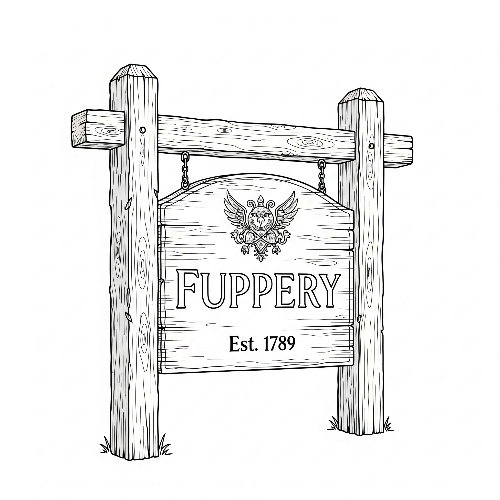
I was a semi-pro jazz musician in my teens. I gigged at least one night a week in a swing big band, and we were deeply uncool. Four saxes, trumpets, trombones, piano, playing Glen Miller, Benny Goodman, and Duke Ellington to old people in village halls and community centres round Norfolk. We wore the coloured blazers swing bands used to wear. In public. On stage.
We were not cool.
But we did get paid.
Cool via the medium of jazz would’ve been possible in the 1980s because pop producers had half-rediscovered jazz. They had sanded down any edginess until it could be slotted into a CD tray. Bryan Ferry, Sade and ABC picked up on the visuals and the outfits which looked good in shallow depth of field on MTV.
We band nerds knew about real jazz, and real British jazzmen, like Humphrey Lyttelton. He had last been even slightly cool in the 1950s, but even then he was trying to revive the New Orleans jazz from 1920s. Former Royal Guardsman and Eton schoolboy — read, extremely posh — and then a Soho-based miscreant and cartoonist, Lyttelton played jazz when jazz was about as respectable as grind. In the 1980s He was still playing, but respectably, in provincial theatres and for the Queen at Royal Variety Performances. He had a jazz show on BBC Radio Two, the most risible of radio stations. I listened to it religiously.
I learned to differentiate Bix from Louis, Coleman from Young and I sneered down on the pop imposters from the heights of nerdery, smirking at the deep bodied guitars, the lack of improvisation, the simplistic harmonies, and the failure to swing. They couldn’t fool me or the other nerds. I preferred my regular cycle of vinyl LPs from the local record library.
I had a tiny record collection of my own, bought with money from the gigs from the weird tiny jazz record shop a couple of miles away. It was nowhere near any other shops and I must have been the only customer under 50 but it felt safe. As one living anachronism, it was comforting to find another one so near.
I bought records on the basis of what was said about them in a book I’d stolen from the school library: The Making of Jazz: A Comprehensive History by James Lincoln Collier. I had no real idea what I was buying till I got it home. It mostly turned out to be junk, because that was all I could afford, but occasionally I accidentally picked up a classic like the Miles Davies and Tadd Dameron in live in Paris in 1949.
I listened to them repeatedly as I pretended to revise for my O levels. They were scratched and battered and sounded terrible through my stereo, which had a blown speaker cone and the music blotted out the sound of arguing parents downstairs.
We nerds also played in our school wind bands (I also played trombone, astonishingly badly, but they needed trombone players, so they never chucked me out) and then came out on Saturday mornings to the back room of a pub, dragging at least one parent, to rehearse music from 40 years ago, because to us this was more fun. At fourteen, we could sight read read pretty complicated music. We discussed Miles Davies jazz at breaks. We were mostly teenagers, though with the odd old amateur jazzer around too, although these were more local teachers and office staff who liked jazz. They weren’t in any way, actual jazz musicians.
I played guitar, avoiding the limelight by sitting in the general environment of the piano and bass, and almost never taking a solo. Guitar in a swing band is about keeping a tight rhythm going, locking in with the drums and bass, pushing the horns along and keep it swinging. Freddie Green, Count Basie’s guitarist was the man for this. I had no time for Hendrix, Jimmy Page, or Slash. I pointed out that French gypsy jazz guitarist Django Reinhardt was clearly more rock’n’roll than any of them, still playing scorching solos despite having two fingers burnt into paralysis when he saved his guitar from his burning caravan.
My own guitar was bought secondhand through the newspaper classifieds. Cello-topped semi-acoustics looked cool enough for the New Romantics, but that also made them too expensive so I had an Ibanez Roadster. Black, stratocaster shaped, no pick guard, but with the pickup selector in the bridge position, it played and sounded pretty good even though it too was an anachronism.
I learned chords from the Mickey Baker Guitar Method, which was the jazz equivalent of Bert Weedon’s book. So much nerdy theory, so many chord substitutions, so many chords with long names, and so many licks to learn. I’d sooth myself to sleep thinking of workable chord inversions.
I didn’t use them though. Even I couldn’t really hear the difference when I played a minor seventh and a minor seventh/ninth, so I knew nobody else was going to. All anyone wanted was that steady chug-chug-chug-chug downward strum, relentless, just a tiny tiny bit ahead of the beat, to push things forward, like Django and Freddie. Plus, I knew that there was a good chance the weirder notes in those chords might clash with what the saxes and brass were doing. Most nerdily of all, I knew those weird chords didn’t pop up in jazz till ten years after the stuff we were playing, when bop pushed swing off the cramped brownstone stages of New York. I knew this because of The Making of Jazz: A Comprehensive History by James Lincoln Collier, which I had largely memorised. It would be musically and historically wrong to play those chords.
I’d built my own guitar amp. I made the cab from plywood, three feet square and a foot deep, painted it sky blue and cut four holes for the four as-new Celestion speakers I’d found in the classified ads in the back of the paper. I made the front grill from plastic garden fence which rattled if you turned it up much. But the head was a Vox AC50 and since we never played Shea Stadium, the volume never needed to over three or four. Regardless, every gig, it got crammed in the back of my father’s car, and lugged up steps, through cramped doorways, onto dusty unglamorous stages, and I set up like a Marshall stack, and I plugged my guitar through it.
After one of the gigs, the bandleader (a dimension nerdier than me, and a year younger, but somehow with the ability to run a swing band) announced that Humphrey Lyttelton was going to be playing at the local theatre, and we’d be supporting him. He had some mystical ability to blag things like this.
Although - ‘supporting’ might be an exaggeration. The big band had a six piece small band which did the lesser gigs - sax, trumpet, trombone, drums, guitar, bass. Benny Goodman, Woody Herman, Artie Shaw and the others had done this too. This small band would be playing in the foyer before, after and during the intermission. But still. It was kind of with him, anyway.
At this point, there should really be the musical equivalent of a training montage. Jazzers call it ‘woodshedding’: going into the woodshed and practising till you bleed. It’s what Miles Davies did after he got rejected from bands the first time round. But we were actually pretty together already, since we played a lot. So we just rolled up and played. And watched Humph from the back of the theatre, feeling like peers and musicians, the coming generation listening to their idols. Next in line.
We played, and we played okay, and got applause, and eventually, Humph came over and had a chat, and was gracious and charming and signed the LPs we’d all bought. Mine says ‘a fine little band’.
It’s not the coolest of stories, I admit. But then, we weren’t the coolest of people.
Genuine question for indie authors as I’m thinking about an ‘author’s newsletter’. Not to be rude, but it would surprise me if anyone gave a fig about my ‘process’. Do you get much traction for posts about how you’ve had a great/terrible/random week’s writing?
Breaking news: a slim young guy on the opposite pavement suddenly stopped, put down the coke bottles he had in each hand, pulled his t shirt up, and watched himself slapping his pale white stomach a few times. Then he replaced the t shirt, picked up the bottles and moved on. #writing
Rewriting is so much easier than the initial writing. Sadly, I can’t rewrite without having writ. #writing #amwriting #writingcommunity
Just finished the vomit draft of quick side-project short story that was only going to be a couple of thousand words then back to the main gig. Quick side project is currently 9500 words. Anyhow, put it away for a week then I’ll come back to do some rewriting. #writingcommunity #amwriting
My grandfather got out of the car, and casually asked me to move it down the hill while he was inside the office. I was 12.
The first time I acted like an adult while feeling like a kid, but not the last.
#WritingCommunity
My grandfather stretched his left arm across the passenger seat and looked out of the back window of his ancient Renault as he reversed into the undertaker’s yard. I looked up from my book on the back seat and watched his right arm reaching away from me, towards the steering wheel. I was twelve years old.
My grandfather helped the village undertaker with his ‘Books’, which were the huge ledgers where he recorded payments, and, far more interestingly, by painstakingly applying small cardboard letters to brass coffin plates to spell out the name and dates of the dead person. It was a similar process to my Letraset transfer letter but he took far more care than I ever did. I had watched him do this on the dining table, the tea-tray at his elbow. Now we were taking the Books and the coffin plates into the undertaker’s office in the village.
My grandfather stopped the car, and pulled on the handbrake. He got out of the car, and casually asked me to move it down the hill while he was inside the office.
“Oh, yes,” I said, nonchalantly. He left the keys in the ignition and disappeared into the office, holding the Books and a bag containing a couple of meticulously annotated coffin plates
I sat alone in the car, my book limp in my hand. Was he just assuming that as a male, I had the innate sense of What To Do With Cars, just as he seemed to?
I had no such thing, despite watching males of the family struggling to start our succession of secondhand cars, twisting ignition keys, wriggling gear levers (they were levers, in those days in England), shifting feet between the three pedals. I’d watched as they mended, replaced, sworn. I’d interrogated and earwigged, trying to understand what was going on.
But I had never, ever been behind the wheel of anything more than my pedal car. And that had been many years ago when I had been a lot younger.
Now my grandfather had handed over a full ton of metal car to me with the implicit confidence that I could be trusted with it. I was thrilled and scared.
My grandfather felt like the centre of the village. He was a teacher at the local school. He was chairman (still a chairman in those days) of the parochial church council, he ran a drama group which toured local village halls, which he compered as a stand up Farmer Giles, amusing the local Mothers Unions and Women’s Institutes. Shopkeepers knew him. Everybody knew him. He’d taught them, or he’d been helping them with their Books, or dealing with officialdom. He knew everyone, and I trailed round in his wake.
And now he was assuming I could do this man-thing.
I scrambled between the front seats and sat behind the wheel. I was not a tall child but if I sat on the very edge of the driver’s seat, I would just be able to see over the steering wheel, and the tips of my toes would just about reach the pedals.
I eased off the handbrake, and waited for it gravity to overcome inertia. The car stayed put. I replayed in my mind the car-starting I’d watched dozens of times, and captured that grip of the gear lever, the quick loose push left and right. I hadn’t done that. I tried it, and felt something ease free. Gears, I guessed.
The car started to roll slowly down the hill towards the road, at less than walking pace.
My grandfather had left it in first gear, the result of a cautious mind and decades of cars with ageing brakes.
The car rolled down the slope in a straight line, towards the archway at the bottom of the slope, next to the road.
My foot hovered over the middle pedal. The brake, I knew, from my interrogations.
My hands gripped the steering wheel. The car needed know steering, but this too was what you did when you drove.
Which was what I was now doing for the first time. Even without the engine running. On private land. And very slowly. Downhill. Ten yards. It was enthralling.
The front of the car drew level with the archway, the entrance to the road.
I pushed down on the middle pedal, holding my breath, feeling the resistance against my foot, pressing down further and the car slowing jerkily, twitching me forward.
And the car stopped.
I kept holding my breath.
My fingers closed round the handbrake, pushing the button on the end in, which took my strength than I’d expected, and I pulled the lever up, listening to the ratchets click, till it wouldn’t go any further. I let go of the button, released the brake.
The next move was to lift my foot off the brake pedal, but what if the handbrake needed the gears to be in first, as my grandfather had left it? What if the handbrake wasn’t good enough to keep the car in place on this slope?
I grabbed the gear lever and pushed it forwards to the position I’d pulled it away from a few seconds ago, but it wouldn’t click back into the place where it had been. I had no idea how to solve this.
I would just have to trust the handbrake. I lifted my foot off the footbrake.
The car stayed put.
I breathed out and lent back in the seat, the way I’d seen drivers do after a long, stressful journey.
My grandfather emerged from the undertaker’s office, this time without the Books and the bag of coffin plates. I scrambled between the front seats into the back of the Renault.
My grandfather bowed into the driver’s seat again and twisted the ignition. “You managed then Freddo.”
“Yeah.” I had. I had managed. I knew more than I thought I did, as it turned out.
He clicked the handbrake button in and pushed it down. His right foot pushed the brake pedal down. Then, his left foot pressed the clutch down and he eased the gear lever into first.
I remembered this for future use.
So that’s the plotting done. Now it’s just… typing. Which is great and also daunting.
#writingcommunity #iamwriting